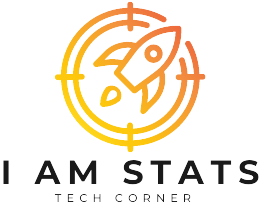Did you know that there are over seven million active scientists worldwide? That’s a vast community dedicated to the pursuit of knowledge, yet for many, science remains an elusive concept, often shrouded in jargon and complexity.
So, what really is science, and who are these people we call scientists? As you navigate through this discourse, you’ll uncover the essence of science, the principles that guide it, and the role of the practitioners who bring it to life.
Curious to know more? Buckle up, you’re in for an enlightening journey.
Defining the concept of science
Let’s dive right in and unravel the complex, yet intriguing concept that’s science. Science isn’t just a subject you studied in school. It’s a systematic approach for understanding the world around us. It’s the tool you use to unravel the mysteries of the universe, to make sense of the incomprehensible, and to push the boundaries of what’s possible.
You see, science is all about inquiry. It’s about asking questions and seeking answers. It’s about curiosity, observation, and experimentation. It’s about logic, reasoning, and critical thinking. It’s about discovery, innovation, and progress.
But science isn’t just about knowledge. It’s also about uncertainty, about admitting what we don’t know and striving to learn more. It’s about skepticism, about questioning assumptions and challenging beliefs. It’s about the pursuit of truth, no matter how elusive it may be.
The evolution of scientific studies
As you delve deeper into the science realm, it’s important to understand how scientific studies have evolved over time, shaping our knowledge and understanding of the universe. This evolution didn’t happen overnight. It’s been an ongoing process, fueled by curiosity and the relentless quest for answers.
In ancient times, science was closely related to philosophy. Thinkers like Aristotle sought to explain natural phenomena through observation and reasoning. But as you move forward in time, you can see a shift. The Renaissance period marked a significant change with the birth of modern science. Leonardo da Vinci’s studies, for instance, blended art, science, and technology.
The Scientific Revolution in the 17th century brought about a major transformation. You’ll notice scientists like Galileo and Newton developing laws based on empirical evidence, not just on philosophical arguments. This era laid the foundation for what you know as the scientific method.
Fast forward to today, we’ve quantum physics, genome mapping, and climate models. You’re living in an era of unprecedented scientific discovery, building on centuries of accumulated knowledge. The evolution of scientific studies is a testament to human ingenuity, showing how far you’ve come and hinting at where you might go.
Key principles and methodologies in science
Diving into the heart of science, you’ll find key principles and methodologies that serve as the backbone of scientific research and discovery. One of these principles is empiricism, the belief that knowledge comes from observation. You’ll make observations, gather data, and then interpret your findings.
A key methodology in science is the scientific method, a systematic approach used to test theories and hypotheses. You’ll start with a question, do background research, construct a hypothesis, test it through an experiment, analyze your data, draw a conclusion, and then communicate your results. This isn’t a one-size-fits-all approach, but it’s a solid foundation.
You’ll also encounter terms like ‘replication’ and ‘peer review’. Replication means repeating a study to verify its results. The more a study is replicated with the same results, the stronger its findings are considered. Peer review, on the other hand, is a process where other scientists in the same field evaluate your work. It’s a way to ensure quality control and establish credibility.
These are just a few of the principles and methodologies in science. Understanding them will give you insight into how science works.
The role and characteristics of scientists
Having grasped the fundamentals and processes of science, you might be curious about the people who apply these principles and methodologies – the scientists. These individuals play a pivotal role in enhancing our understanding of the world. They don’t just memorize facts or regurgitate theories; they’re critical thinkers who question, analyze, and interpret data to uncover the truths of our universe.
Scientists are naturally curious. They’re constantly asking ‘why?’ and ‘how?’ and strive to find answers. They’re also meticulous, ensuring that every experiment is conducted precisely and results are accurately recorded. They’re persistent, often facing failure in their attempts to prove a hypothesis, but they don’t give up.
But perhaps the most essential characteristic of a scientist is integrity. They’re committed to the truth, and won’t manipulate data to fit a preconceived notion. They’re also open-minded, willing to consider alternative hypotheses and to change their minds when evidence supports a different conclusion.
In a world of misinformation, scientists are beacons of truth and rationality. They’re not just intellectuals in lab coats – they’re explorers, pioneers, and guardians of knowledge. Your understanding of science isn’t complete without appreciating the role and characteristics of these dedicated individuals.
Real-world impacts of scientific discoveries
Unraveling the real-world impacts of scientific discoveries, you’ll find that these breakthroughs not only expand our knowledge but also fundamentally change our everyday lives. They’re not just theoretical concepts confined within the walls of a laboratory, but have tangible, practical implications that affect you directly.
Consider the discovery of antibiotics. Before their advent, you’d face a high risk of death from common infections. Thanks to science, you can now access these life-saving drugs. Similarly, your smartphone, a marvel of modern science, is a product of numerous scientific discoveries across various fields. It’s hard to imagine your life without it, isn’t it?
But it’s not only about improving your comfort or convenience. Science also addresses critical global issues. Climate change, for instance, is a pressing concern. Scientific discoveries haven’t only helped us understand this phenomenon but also opened avenues for mitigation strategies.
Conclusion
So, you’ve now grasped the basics of science, its evolution, principles, and methodologies. You’ve also got to know about scientists, their roles, and characteristics. And, you’ve seen the real-world impacts of scientific breakthroughs.
Hopefully, you now appreciate why science isn’t just a subject—it’s a way of understanding, exploring, and improving our world.
Keep questioning and keep exploring, for that’s what science is all about!







